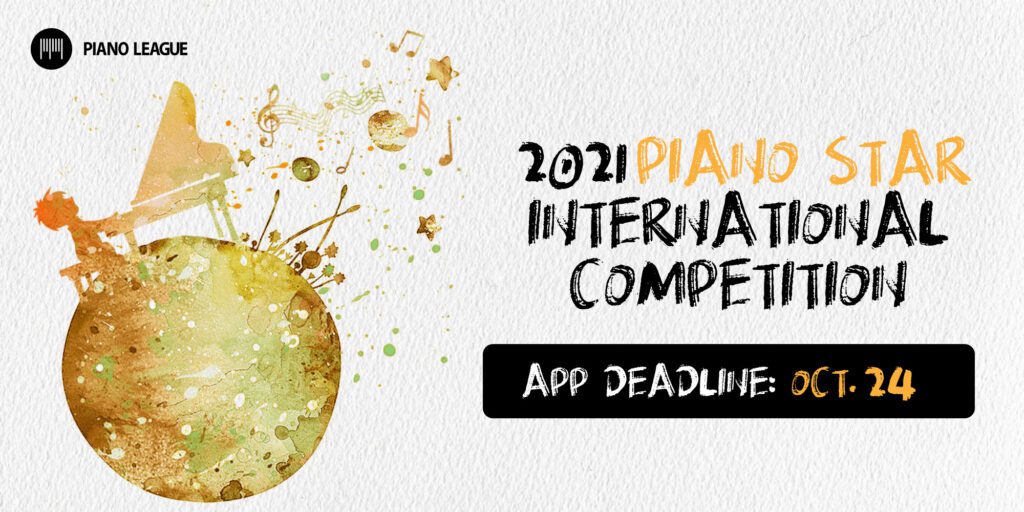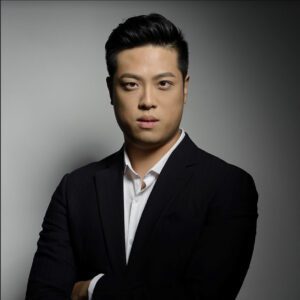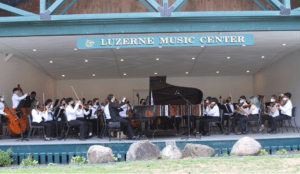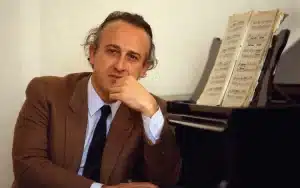Dr. Pornphan Orn Banternghansa and Dr. Chris McKiggan were co-winners of the 2020 PL Teacher of the Year award. They run the Piano Academy of Bangkok together in Bangkok, Thailand.
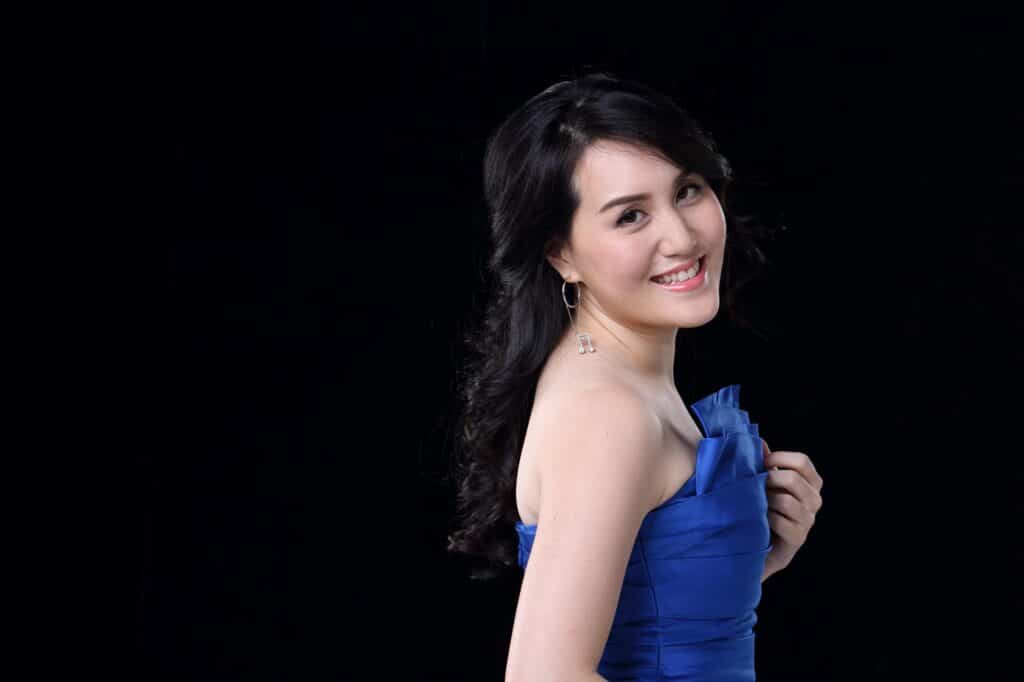

The Piano League Teacher of the Year award is designed to identify and reward teachers who consistently produce good students, by counting the number of students who get first prizes at the Piano League Piano Star International Competition.
Last year, the duo had 8 students who won first prizes (and many more who won other prizes) at the competition, an incredible achievement. As this year’s competition goes underway, we talked with them to see what their secrets are.
PL: First of all, congratulations on winning the first-ever Piano League Teacher of the Year award. To start off our conversation today, can you tell us how many years you’ve each been teaching?
Banternghansa: I have been teaching for about 11 years now.
McKiggan: and for me, as a full-time piano teacher I’ve been teaching for about 6 years now.
PL: How and why did you decide to start the Piano Academy of Bangkok together?
McKiggan: Dr. Orn and myself have been friends for over 20 years now, but never really collaborated on anything until after my studies. In 2016, I arrived back in Thailand after studying in America for 11 years. I started teaching privately at my own studio for a short while, and one day Dr. Orn contacted me.
Dr. Orn had been teaching in Thailand already several years prior to me arriving back in Thailand. She mentioned that she had a student playing Debussy, and that she would like me to give some insight into the piece. I agreed, and after the lesson, we both realized that we enjoyed the experience of teaching the same student. She then asked me to help coach another one of her students which worked out great also. About a year later, Dr. Orn called me and told me that she was planning on starting a school, and she’d like me to be the founding member along with her. I immediately said yes, and two months later, the Piano Academy of Bangkok was up and running.

PL: What are the biggest challenges of running the piano academy?
McKiggan: Keeping communication clean and concise is certainly one of the biggest challenges. We now have about 20 teachers and getting close to 200 students at our school. And since we work on a collaborative system a lot of the time, making sure we communicate on the goals and directions for each student is critical to the success of the school and students.
PL: You mentioned that you work on a collaborative system, and that’s very interesting. Most students, especially when they are young, have only one teacher. You have a unique system where you co-teach many students. Can you introduce your system and the rationale behind it?
Banternghansa: I believe that each teacher is unique and each student is also unique as well. There are so many ways to play the piano and interpret a piece. Therefore, some ideas or technique may work for some students and not for others. When we co-teach, we discuss in detail and address the parts that need help. If co-teaching is executed well, it has a more positive impact than a negative one. I found that when my students receive new insights from Dr. Chris, especially from the piece that I have been teaching for a long time, their playings improved from new inspirations and new ideas. However, as mentioned earlier, communication and timing of who will teach what is very important and it needs to be dealt with delicacy and respect.
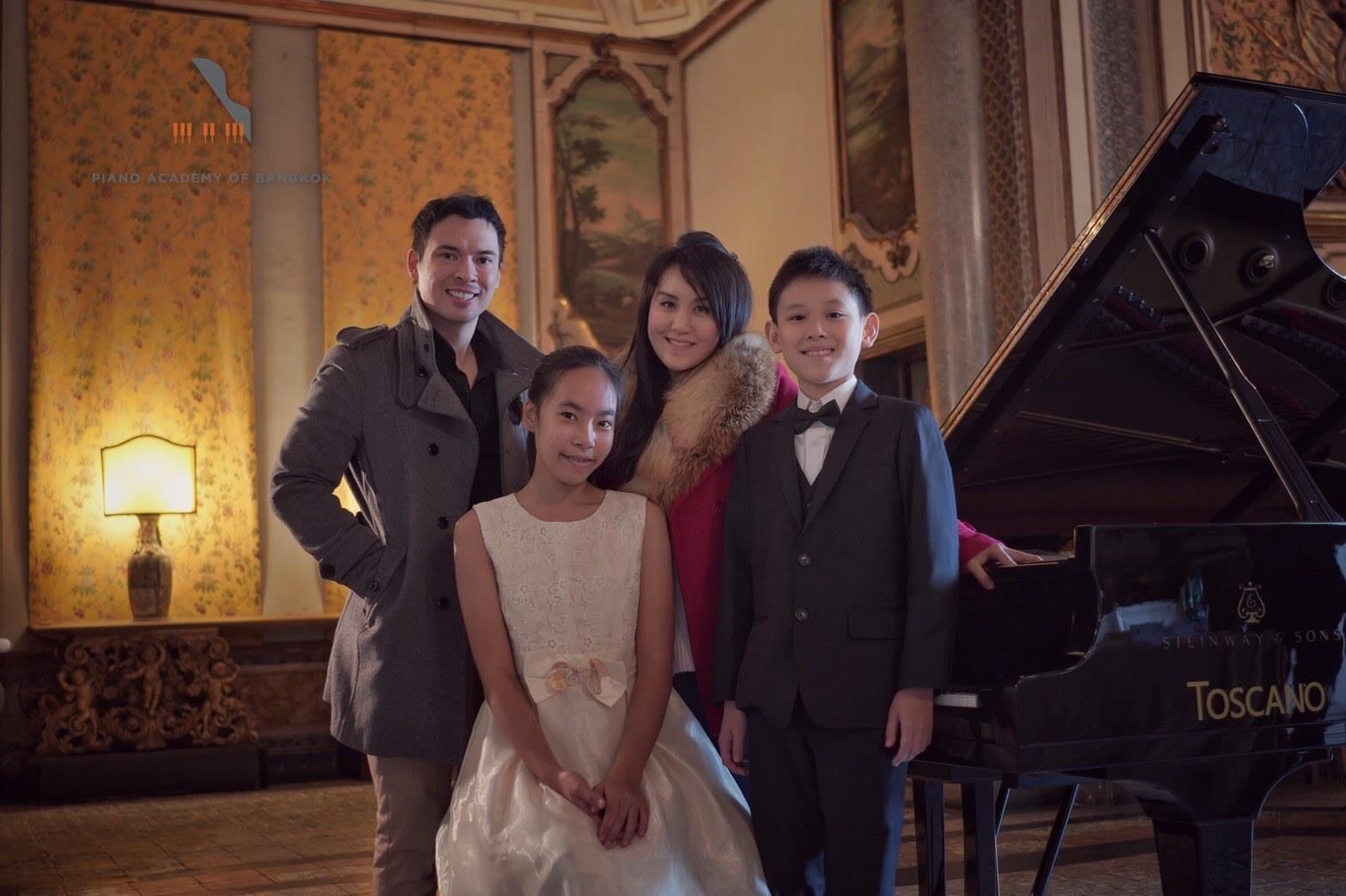
PL: Who decides when it’s time to “pass” a piece and move on to new pieces? Who assigns the new pieces?
Banternghansa: We usually update each other almost every day about our students. So, the decision is more from the both of us after we discuss.
PL: Would you recommend other teachers implement this system as well?
McKiggan: This is truly difficult to answer as we fully realize that this system might not work for everyone. We are very conscientious regarding who we choose as teachers at our school, as it is imperative that the chemistry is perfectly tuned between each other. Beyond this, any teacher willing to experiment with this method must be completely open-minded to all others regarding the ideas being given by other teachers. Furthermore, the communication between all the teachers teaching the same student have to be consistent to prevent confusion in each student. However, if all the above seem fine to you, then we truly believe in this system, and we are extremely proud of the accomplishments of all our teachers and students through this method.
PL: Do you also “pick” your students? In other words, do students have to audition to get into your studio?
McKiggan: For complete beginners, we usually just assign and match based on availability. But if the incoming student has some basics, me or Dr. Orn usually give an assessment to each incoming student to assess what abilities need to be strengthened and then assign from there. We believe in chemistry a lot, so we try our best to match students with teachers based on how suitable they would be for each other. Me and Dr. Orn do rotate to see most students every few months or so, to help give further insight into the direction of our Piano Academy students. However, there is a limited amount of time in each week, so there are some factors that go into choosing students to be part of our regular studio slots.
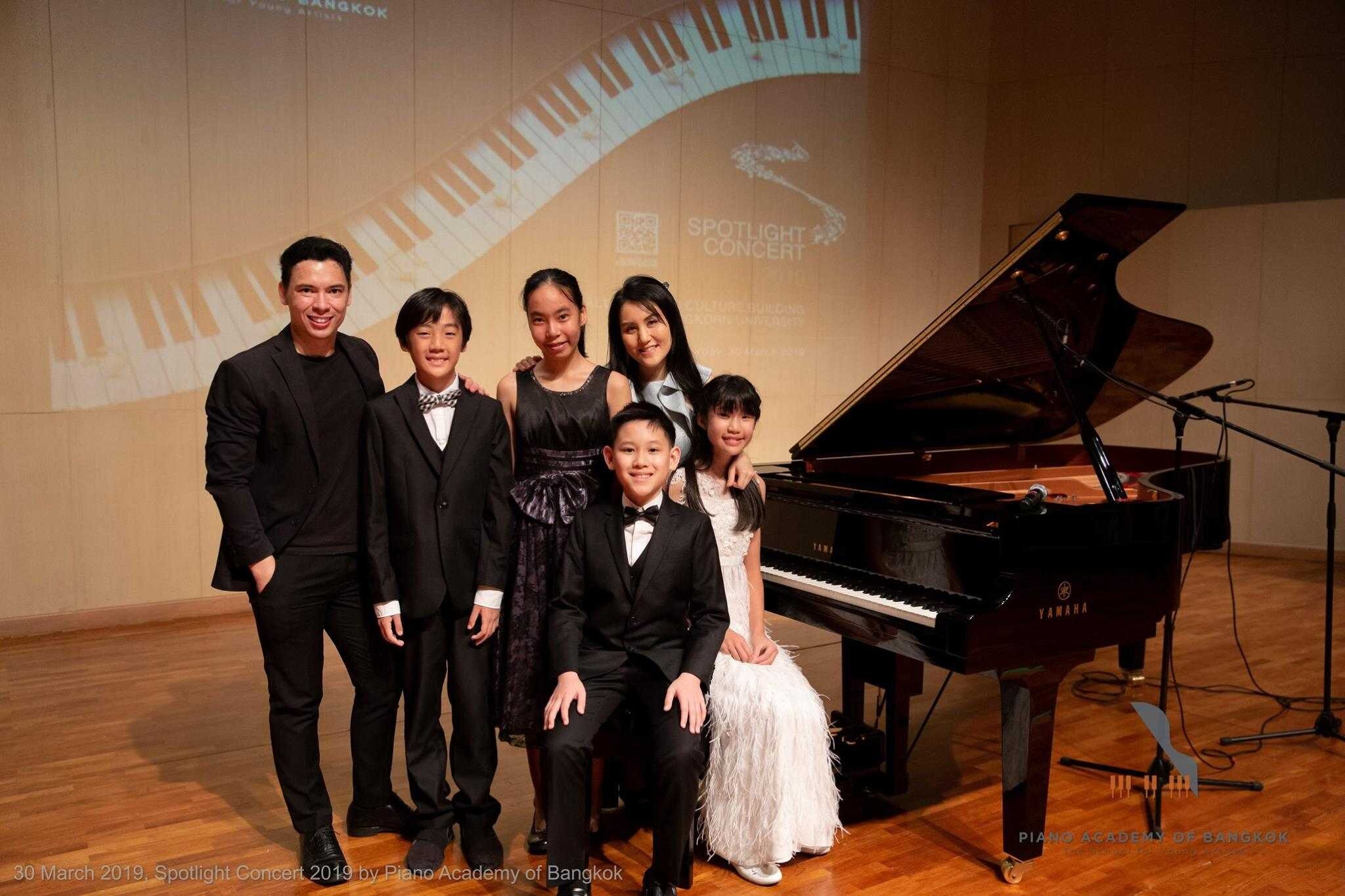
PL: Do you teach complete beginners?
McKiggan: I have taught several complete beginners over my time as a teacher. And while lately this might not be the case as often, but I do still accept complete beginners from time to time. And I have done so several times since starting the Piano Academy of Bangkok.
Banternghansa: That is the same case for me also.
PL: One of the challenges many teachers have is getting their students to practice. How do you motivate your students to practice, and do you have minimum practice requirements for them?
McKiggan: In my ideal mindset, I feel the inspiration starts in the lessons. I work hard in every lesson to try to teach the student how to practice while in class. I’ve found that getting a student to realize how much they can improve from small amounts of focused practice seems to encourage them to practice more.
Also, I’ve found that a consistent supply of goals, like competitions, concerts, and/or exams also helps focus each student and encourages self-motivation. It’s also important to explain this mindset to the parents and work with them closely to find ways of creating an atmosphere for the student at home that allows the student to flourish during their self-study.
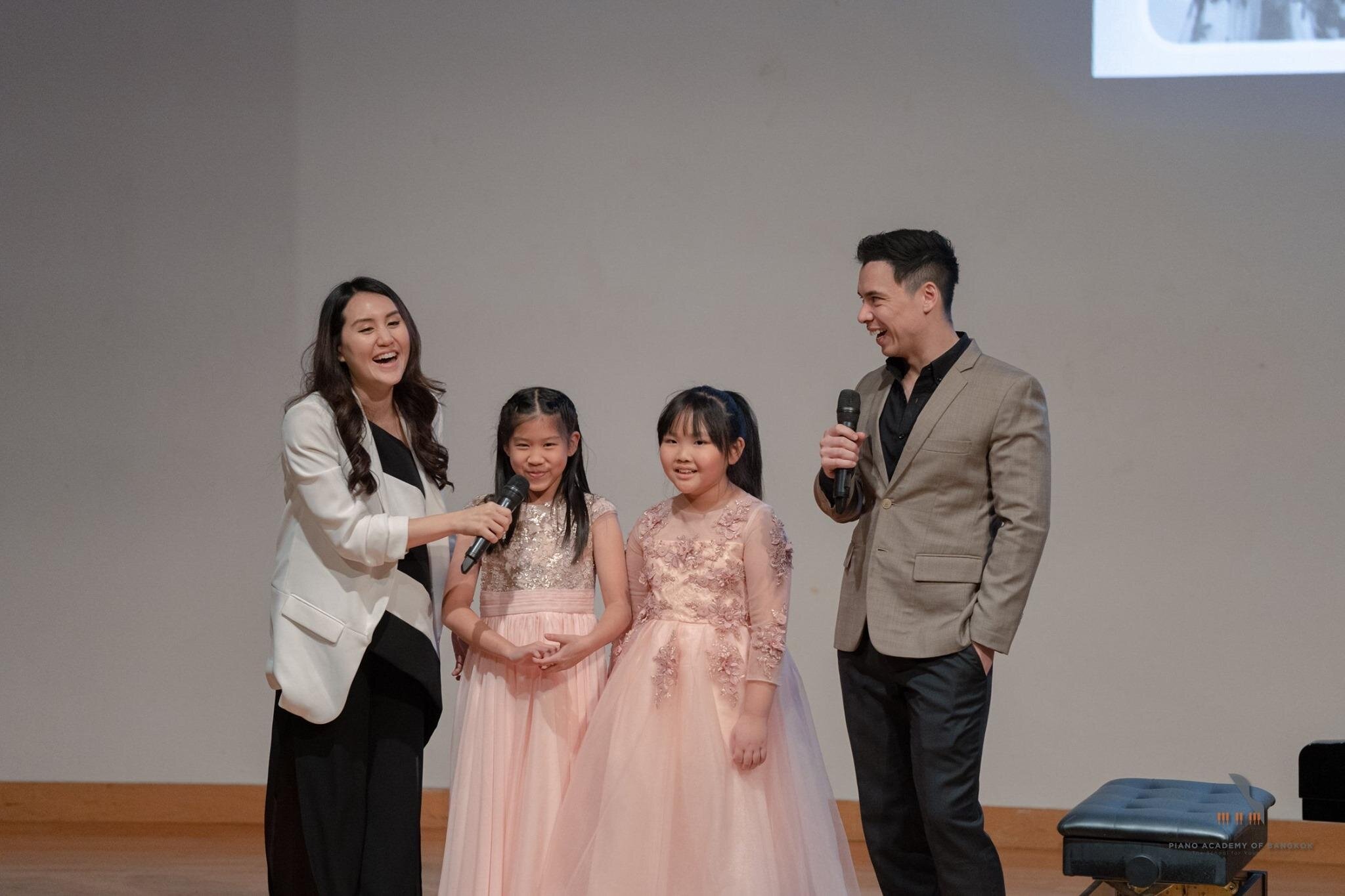
PL: What’s the piano scene like in Thailand? Do you think we will see more and more pianists from Thailand on the international stage?
Banternghansa: The piano scene in Thailand is definitely on its way up! The standard is definitely much higher than when I was young. There are definitely more interested in classical music scenes including more classical concerts as well than 20-30 years ago. I remember that before I went to college in the states, there was only one University in Thailand that offers a music degree. However, now most major Universities have a music department. There are also many more piano competitions in Thailand and Southeast Asia than before.
A few years ago, one of our students also was the first Thai to win first place at the 5th Franz Liszt Competition for Young Pianist in Weimar. After that, she also participated in other important international stages, such as the Hilton Head Junior Competition.
There are also many other young talents as well in Thailand who I can definitely see that will be on international stages in the future.
PL: In your opinion, what are the most important qualities of a good piano teacher?
Banternghansa: Being a teacher is such an important job. We have to be very responsible because we make such a big impact on the students according to how we teach.
I believe that a good piano teacher should inspire the students to LOVE music so that later in their lives, making music can always be something that they come back to. It will be their companion when they are having a bad day or going through stressful times. After all, that’s what making music is about.
A good teacher should be able to challenge and communicate to the students in ways that are fun, interesting and yet they still keep making progress. They also should be flexible and versatile to different kinds of learners as well.
PL: Thank you for sharing your knowledge and experience with us. Any last advice or tips for the 2021 Piano League Piano Star International Competition teachers and competitors?
McKiggan: Keep finding ways on inspiring yourself, and don’t be afraid to experiment with new ideas. Certainly, it’s very possible for an experiment to be a failure, so it’s terrifying to go off the beaten path. But, by doing this, you might be able to grow beyond what you could ever possibly imagine.
(To apply to the 2021 Piano Star competition, go to https://thepianoleague.com/pianostar2021)
